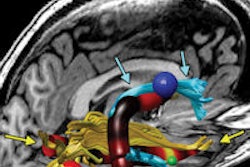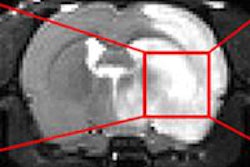Breast MR's downsides are the high cost of the exam and its false-positive rate, Dr. Laura Heacock and colleagues wrote. A shorter MR protocol may be cheaper and still identify cancers. Heacock's group used a protocol that resulted in a seven-minute exam, whereas the typical exam usually takes 35 minutes.
The study included 103 women with 180 suspicious findings who were examined with 3-tesla breast MR. Two readers interpreted the exams and found 125 cancers, 11 of which were contralateral lesions that mammography missed. Of the cancers, 79 were invasive ductal carcinoma (IDC), 10 were invasive lobular carcinoma (ILC), 23 were ductal carcinoma in situ (DCIS), and 13 were both IDC and DCIS, Heacock's team found.
The first reader's sensitivity using the abridged breast MR protocol was 99.2%, while the second reader's sensitivity was 96%. Overall, the abridged MR protocol had a sensitivity of 98% for invasive cancers and 83% for DCIS, and it showed increased specificity versus the traditional breast MR protocol, the team concluded.



















